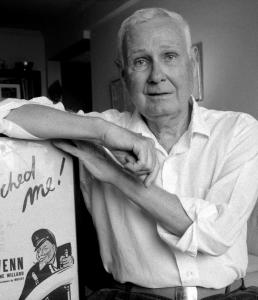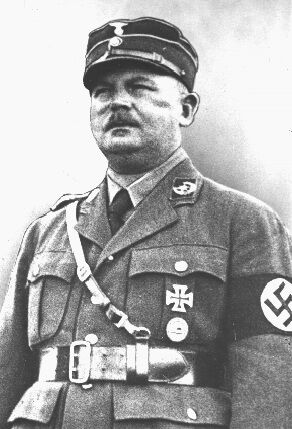|
Gay Wisdom for Daily Living brought to you by White Crane Institute ͏ ͏ ͏ ͏ ͏ ͏ ͏ ͏ ͏ ͏ ͏ ͏ ͏ ͏ ͏ ͏ ͏ ͏ ͏ ͏ ͏ ͏ ͏ ͏ ͏ ͏ ͏ ͏ ͏ ͏ ͏ ͏ ͏ ͏ ͏ ͏ ͏ ͏ ͏ ͏ ͏ ͏ ͏ ͏ ͏ ͏ ͏ ͏ ͏ ͏ ͏ ͏ ͏ ͏ ͏ ͏ ͏ ͏ ͏ ͏ ͏ ͏ ͏ ͏ ͏ ͏ ͏ ͏ ͏ ͏ ͏ ͏ ͏ ͏ ͏ ͏ ͏ ͏ ͏ ͏ ͏ ͏ ͏ ͏ ͏ ͏ ͏ ͏ ͏ ͏ ͏ ͏ ͏ ͏ ͏ ͏ ͏ ͏ ͏ ͏ ͏ ͏ ͏ ͏ ͏ ͏ ͏ ͏ ͏ ͏ ͏ ͏ ͏ ͏ ͏ ͏ ͏ ͏ ͏ ͏ ͏ ͏ ͏ ͏ ͏ ͏ ͏ ͏ ͏ ͏ ͏ ͏ ͏
|
|
||||
| This Day in Gay History | ||||
July 02Born 1920 - DONALD WINDHAM, American novelist and memoirist, born (d: 2010); Of Donald Windham’s novels, the best known, perhaps is Two People, a lovely book about an affair between a married American businessman and a Roman boy. Despite his own considerable talents, Windham may very likely wind up being remembered, like the parts played in endless movies by Ralph Bellamy, as someone else’s best friend. The “someone else,” in Windham’s case was Tennessee Williams. Windham was nineteen when he met the twenty-eight year old Williams. The two had in common their ambitions as young writers, their Southern backgrounds, their lack of money in pre-war New York, and their sexuality. Eventually they decided to collaborate on a play, and while Windham stayed in New York, Williams wandered between Provincetown, Mass, and other places in search of boys and a quiet retreat in which to write. During those years began a correspondence which Windham collected and finally published in 1977. Although Williams published his own rather disappointing autobiography, the Windham letters, with the novelist’s excellent annotations, are the real, albeit incomplete, Tennessee Williams memoir. The letters are dazzling, unguarded, racy, funny, and, above all, revealing of every flattering and not so flattering aspect of the famous playwright over a twenty-five year period. While his relationship with Williams was strained by the publication of the letters, Windham remained a friend of Truman Capote until Capote's death. Windham also met and befriended such diverse figures as Lincoln Kirstein, Pavel Tchelitchew and Paul Cadmus. Windham's novels include the The Dog Star (1950), praised by André Gide and Thomas Mann, The Hero Continues (1960), which was likely based on Williams, and Tanaquil (1972), based on the life of George Platt Lynes. Lost Friendships, a memoir of his friendship with Capote and Williams, was published in 1987. It was regarded by some as his best book. Homosexuality is one of many themes treated in his work. Windham died June 1st 2010, at his home in Manhattan at the age of 89. Died 1934 - ERNST RÖHM, Nazi official died (b. 1887); German military officer and later the commander and co-founder of the Nazi Sturmabteilung, also known as the SA. In 1930 Hitler personally assumed command of the SA as its new Oberste SA-Führer and sent a personal request to Röhm, asking that he return to Germany to serve as the SA’s chief of staff. Röhm accepted this offer in 1931, bringing radical new ideas to the SA and staffing its senior leadership with several of his close friends. The open homosexuality of Röhm and other SA leaders (such as Edmund Heines) along with the storm-troopers' penchant for drinking and street violence added to the SA's notorious reputation in Germany. The SA was a political army, protecting the party leadership and terrorizing (primarily communist) opponents such as the Red Front. The SA's street-wise use of intimidation contributed to the rise of the Nazis, first in Munich and later throughout Germany. Many writers have suggested Röhm and his deputy Edmund Heines allowed or encouraged the promotion of many individuals into SA leadership as a result of liaisons with both themselves and other powerful SA figures (for example, Karl Ernst had been a bouncer at a gay nightclub in Berlin) in spite of virulently anti-Gay Nazi policies which included the strengthening of Paragraph 175 (criminalizing homosexual acts) of the German Criminal Code of 1871. By this time, Röhm and Hitler were so close that Hitler addressed Röhm as du, the German familiar form of "you." In turn, Röhm was the only member of the party who addressed Hitler as "Adolf," rather than "my Führer." It is not the first or last time a political party was duplicitous or hypocritical in the pursuit of power. Although determined to curb the power of the SA, Hitler put off doing away with his long-time comrade Ernst Röhm to the very end. Himmler, Heydrich and Göring used Röhm's published anti-Hitler rhetoric to assert the SA was plotting to overthrow Hitler. The SA was purged during the “Night of the Long Knives” in June 1934. Hitler arranged to arrest Röhm personally at a resort in Bad Wiessee on June 30. Röhm was briefly held without trial at Stadelheim Prison in Munich in cell 70. Hitler was uneasy authorizing his execution and as a last act of compassion, ensured he had an opportunity to commit suicide first. On July 2 he was visited by SS-Brigadeführer Theodor Eicke (then Kommandant of Dachau) and SS-Sturmbannführer Michael Lippert, who offered Röhm a pistol. When Röhm refused to commit suicide, Lippert shot Röhm at point-blank range. The purge of the SA was legalized the next day by a decree in the Law Regarding Measures of State Self-Defense. John Toland noted that Hitler, while disapproving, had long been privately aware Röhm was homosexual. Nevertheless, Nazi propaganda accounts of the purge made use of Röhm's sexual orientation as a justification of his execution. | ||||
|
|8|O|8|O|8|O|8|O|8|O|8|O|8|O|8| Gay Wisdom for Daily Living from White Crane Institute "With the increasing commodification of gay news, views, and culture by powerful corporate interests, having a strong independent voice in our community is all the more important. White Crane is one of the last brave standouts in this bland new world... a triumph over the looming mediocrity of the mainstream Gay world." - Mark Thompson Exploring Gay Wisdom & Culture since 1989! |8|O|8|O|8|O|8|O|8|O|8|O|8|O|8| | ||||
|
|||||
|



